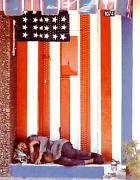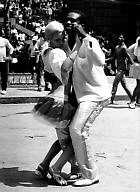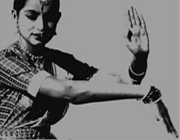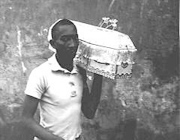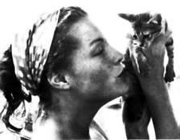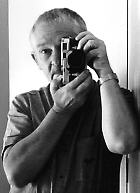|
Joe Heydecker's
photographic work was produced between 1937 and 1997, the year of his
death. He intended first of all to inform and document but did not neglect
the artistic aspects of the medium.
Heydecker
served in WW II as a private in the Wehrmacht, traveling to Belgium,
France, Poland and Russia. A professional photographer, he always carried
a Kine-Exakta to record his experiences, but never photographed battle
scenes.
His Warsaw Ghetto photos of 1941 and of the destroyed and deserted Warsaw
of 1944 are important historical records.
His work from 1939 to 1945 consisted of 1,880 negatives and their contacts,
and 389 photographs that are now archived at the
Austrian
National Library in Vienna under the number EZ 2840.
After the War, Heydecker worked as a journalist and illustrated many
of his reports with photos from his extensive travels in South America,
India, Sri Lanka and Europe.
Some of these works included photos of
- the
young actress Romy Schneider
- the
Staglieno cemetery in Genoa
- the
ruins of Tiahuanaco
- Brazilian
art and artists
- the
complete works of the surrealist painter Paul Delvaux
- Spanish
and Portuguese churches and cloisters
- tropical
landscapes
Besides 250 slides, Heydecker's complete work consists of 24,000 negatives
with their contacts, all numbered and some lettered.1,500-2,000 prints
are in different formats, mostly black-and-white, 24 x 18 cm, signed
and dated. 2,500 prints are color and black-and-white, 12 x 9 cm. and
8 x 6 cm., signed and dated. Fifteen per cent of his prints are color.
Archived under number EZ 2938 at the Austrian
National Library in Vienna.
|
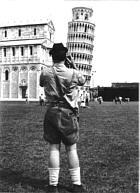 |

